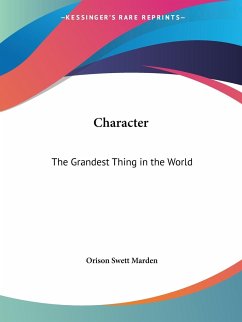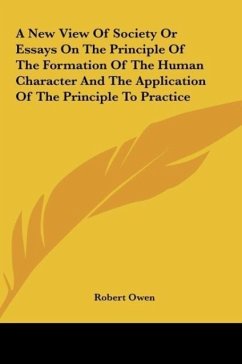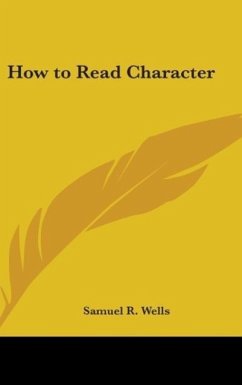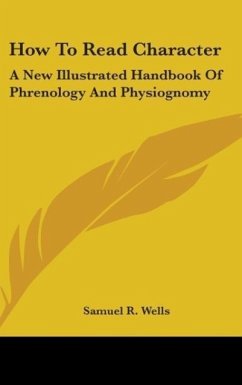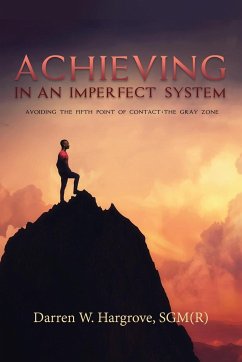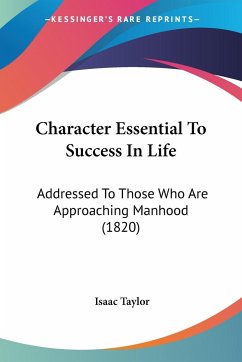
Character Essential To Success In Life
Addressed To Those Who Are Approaching Manhood (1820)
Versandkostenfrei!
Versandfertig in 1-2 Wochen
24,99 €
inkl. MwSt.

PAYBACK Punkte
12 °P sammeln!
""Character Essential To Success In Life: Addressed To Those Who Are Approaching Manhood"" is a book written by Isaac Taylor and published in 1820. The book is a guide to young men who are about to enter adulthood, and it emphasizes the importance of developing a strong character in order to achieve success in life. Taylor argues that character is more important than talent or intelligence, and he provides practical advice on how to develop virtues such as honesty, perseverance, and self-discipline. The book also discusses the role of religion in shaping character, and it encourages readers to...
""Character Essential To Success In Life: Addressed To Those Who Are Approaching Manhood"" is a book written by Isaac Taylor and published in 1820. The book is a guide to young men who are about to enter adulthood, and it emphasizes the importance of developing a strong character in order to achieve success in life. Taylor argues that character is more important than talent or intelligence, and he provides practical advice on how to develop virtues such as honesty, perseverance, and self-discipline. The book also discusses the role of religion in shaping character, and it encourages readers to seek spiritual guidance in their quest for personal growth. Overall, ""Character Essential To Success In Life"" is a timeless work that offers valuable insights into the nature of human character and the keys to achieving success and happiness in life.This scarce antiquarian book is a facsimile reprint of the old original and may contain some imperfections such as library marks and notations. Because we believe this work is culturally important, we have made it available as part of our commitment for protecting, preserving, and promoting the world's literature in affordable, high quality, modern editions, that are true to their original work.




